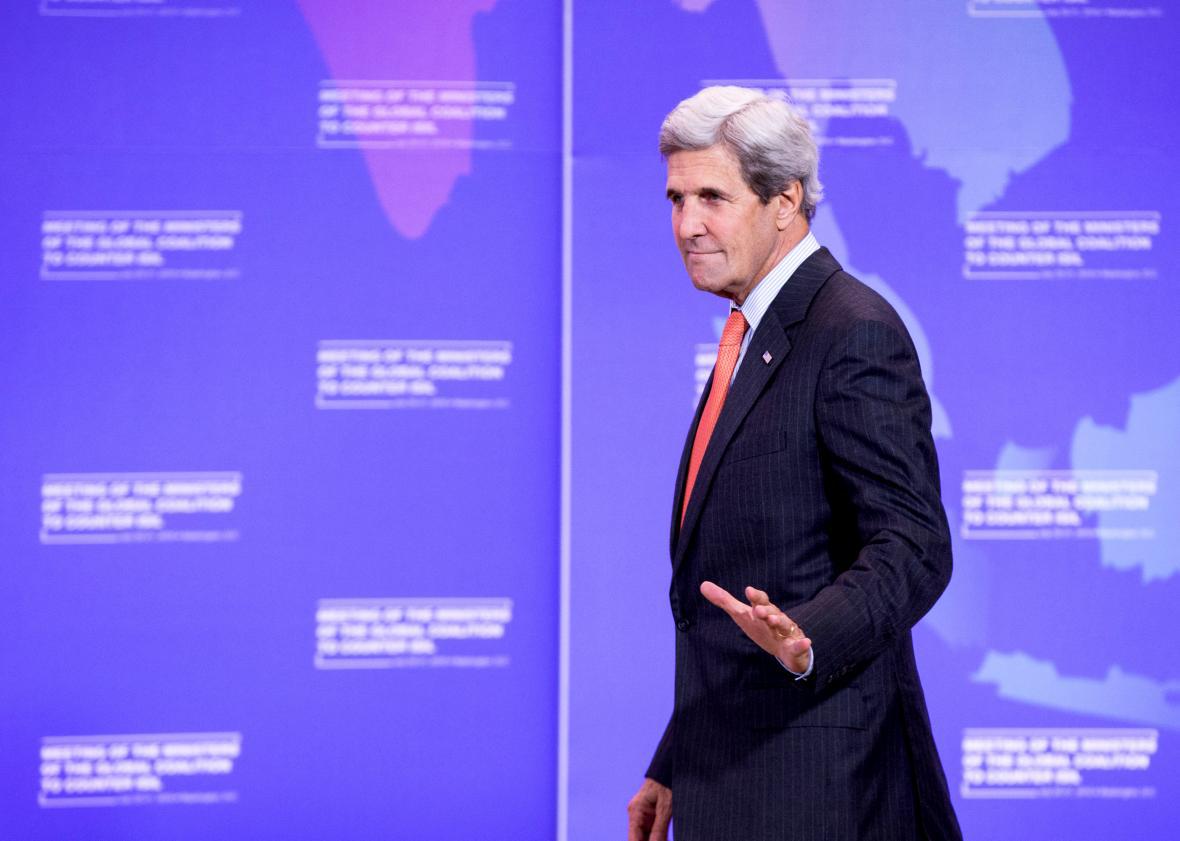The New York Times reports Wednesday that Secretary of Defense Ashton Carter was among the officials who argued against agreeing to the Syria cease-fire deal between the United States and Russia negotiated by Secretary of State John Kerry last week. President Obama eventually agreed to the deal after several hours of debate last week, the Times reports. The story portrays the disagreement over the deal as part of a larger, growing rift between the Pentagon and the State Department. This follows a summer that saw rumblings of discontent over the Obama administration’s Syria policy within the State Department itself.
If the cease-fire, which went into effect Monday, holds for seven days, the U.S. and Russia are supposed to begin sharing intelligence on targeting ISIS and Jabhat Fateh al-Sham, the group formerly known as the Nusra Front. But U.S. military commanders haven’t actually committed to that happening yet, with Lt. Gen. Jeffrey L. Harrigian, commander of the Air Forces Central Command, telling the Times, “I’m not saying yes or no. It would be premature to say that we’re going to jump right into it.”
As Foreign Policy reported earlier this week, mistrust of Russia runs deep among U.S. military commanders, after months of Russian airstrikes on U.S.-backed rebel groups as well as a number of close calls between U.S. and Russian forces. There are also concerns that sharing targeting data with Russia could reveal too much information about U.S. tactics and intelligence gathering methods, not just in Syria but elsewhere.
It’s difficult to adjudicate the internal squabbling over the deal, given that, as the Times notes, “the State Department has not released text of the agreement with the Russians, or even a fact sheet summarizing it.” The AP published a summary Wednesday based on interviews with anonymous officials, but it’s heavy on detail of how the cease-fire around Aleppo, Syria, will be implemented and contains very little information on the most controversial part of the agreement—how the targeting of terrorists by the U.S. and Russia will work going forward. Even Kerry himself seems a little confused about this. He suggested on Monday that the U.S. would be involved in evaluating airstrikes by the Syrian military, but the State Department immediately walked that back, stressing that the only coordination would be with Russia.
Kerry defended the deal on NPR on Wednesday morning, arguing, essentially, that it’s better than nothing. “What’s the alternative? The alternative is to allow us to go from 450,000 people who’ve been slaughtered to how many thousands more?” he said.
The cease-fire around the city of Aleppo has been mostly holding, despite a few violations, particularly on the first night. However, trucks carrying much needed aid to the besieged city are still sitting across the border in Turkey waiting for assurances of safe travel from the Syrian government because the Syrians object to Turkish trucks making the deliveries.
We still have five days to go before we can judge whether at least the first stage of the cease-fire is a success. Coverage of this deal often notes that it’s a legacy issue for Kerry, but the fact that so many officials seem anxious to make clear that it should only be his legacy on the line isn’t exactly encouraging.
